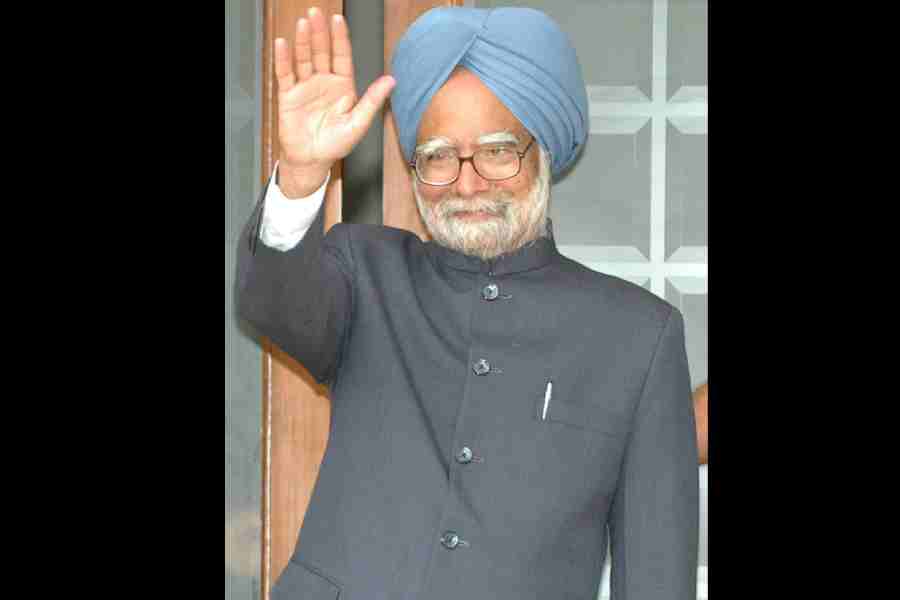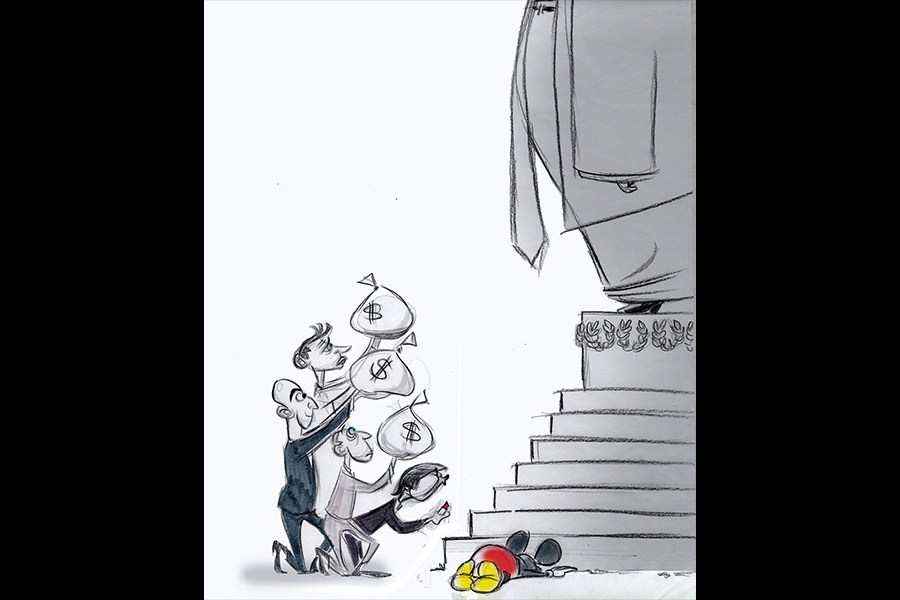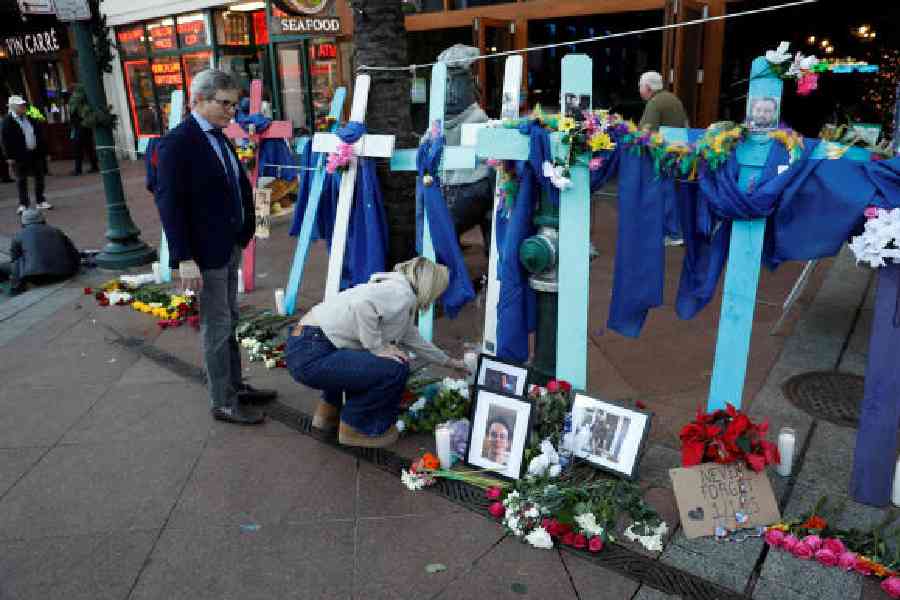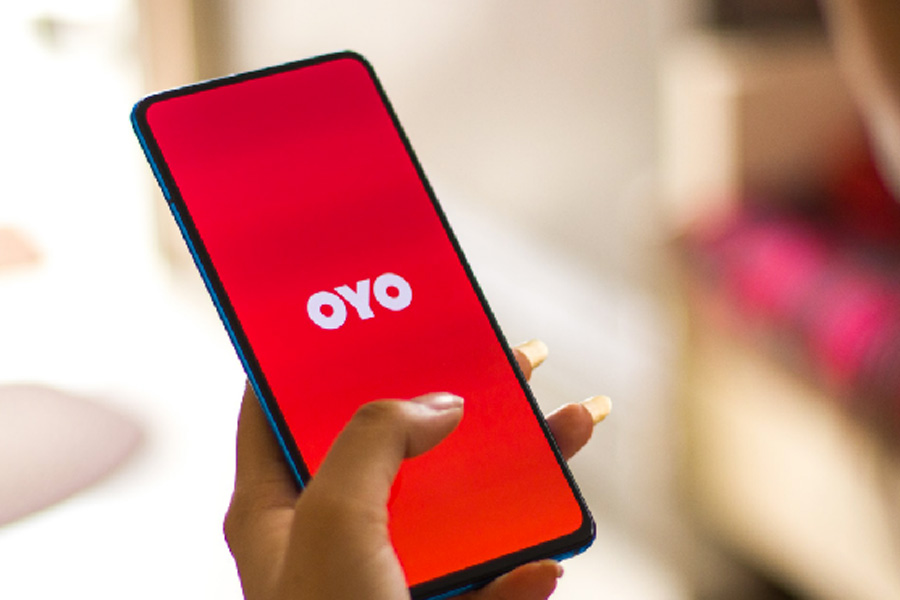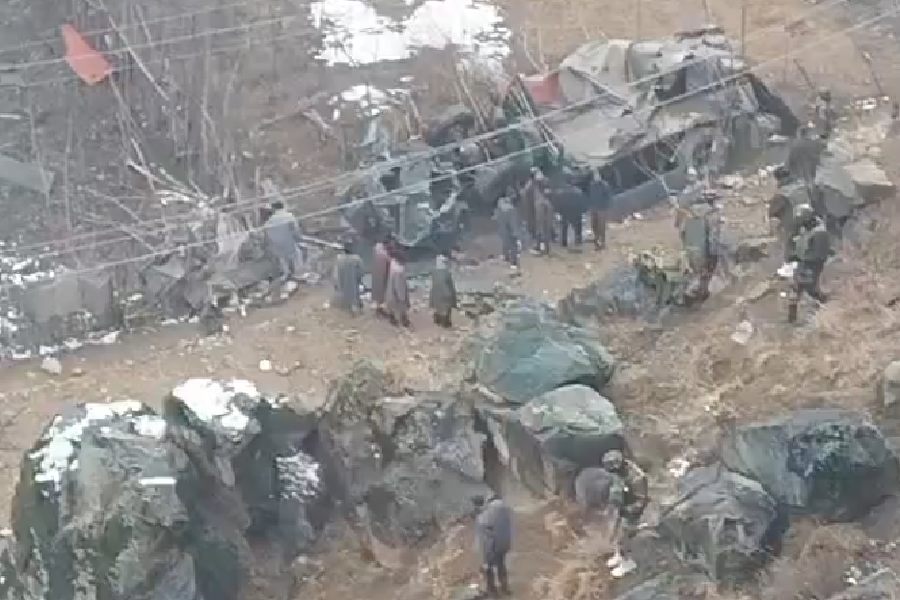If history takes its time, cartoonists don’t. We don’t have to wait for history to judge Manmohan Singh.
The kindest denouement was conferred on Singh after his passing by E.P. Unny, the chief political cartoonist for The Indian Express.
“Super man mohan”, Unny scrawled in his signature style on a sketch of Singh — and crossed out the word, “Super”, leaving only “man” and the rest of the name. Perhaps, through the life he led, Singh himself cut the word out for the cartoonist. Unny focussed on the word, “man”, not in the masculine sense but to underscore that Singh’s greatness lay in his station in life as a human being — with the failings — and he did not need the de rigueur yoke that the so-called strongmen are condemned to carry in their choreographed lives.
There cannot be a higher honour than the excision of the ‘Super’ millstone from a public figure in a contemporary world mostly governed by self-styled supermen clothed in kitschy costumes and uglier statecraft.
Much has been written about what made Singh stand out. Most of these ‘qualities’ — civility, humility, honesty, industry, respect for others and willingness to listen to critics — are what we expect in all fellow human beings, captured in the catch-all phrase, ‘decency’, but are in reality the very core of the constitutional values that we proclaim to uphold. In a civilised society, you don’t need to emphasise that a fellow citizen respected dissent and was civil, humble and honest (everyday variants of liberty, equality and fraternity that form the core of a social democracy). Such niceties are highlighted only when there is little else to say about someone.
But like bail in India now, decency is bandied about as the norm although we suspect that it is the exception. Few commentaries remembering Singh left out the customary virtuous phrases, unwittingly suggesting that these elementary values that citizens are expected to pick up from their homes and schools have now become rare sightings.
Or were the obituary writers indirectly contrasting Singh with his successor, speaking volumes without saying so?
Some of us lionise not just our elected representatives but anyone with any role in influencing our lives, seeking to make superhumans out of them. Several citizens who claim to be progressive pepper their conversations with seemingly innocuous but telling phrases like ‘good family’ (whatever it means), ‘wheatish complexion’ and ‘Roman nose’ — attributes they inherited, not earned by dint of their hard work.
Once a large section that makes up a nation tiptoes down these slippery slopes of unquestioning hero-worship, it is a matter of time before we allow our lives to be taken over by superstitions that thrive on labels like ‘weak’ and ‘strong’ and caveman themes such as the circumference of the chest.
Singh was by no means weak, which is not necessarily a compliment. The economic changes that came to be known as reforms and were facilitated by him and other colleagues were not the stuff the faint-hearted could have pulled off. If the economic policy changes are credited with lifting millions out of poverty, critics feel that they also inflicted considerable pain on some citizens and fanned the flames of inequality. After Singh took charge as prime minister, many of the rights-based welfare decisions —even when the imprints of the Left and Sonia Gandhi were apparent — could be viewed as an attempt at mitigating some of the eventual impact of the animal spirit that he sought to awaken in the 1990s.
The political and social fallout of the economic changes, especially that of the rise of a middle class that tasted consumerist blood, has yet to be analysed or assessed conclusively. What made Singh cope with a prime minister who miserably failed to protect the Babri Masjid is also a question that cannot be swept under the carpet. But inconvenient questions could be asked of Singh without being labelled anti-national. Uncomfortable questions are the lifeblood of constitutionalism.
Last week, some commentators referred to how Singh became a prisoner of coalition politics under UPA-II and was reduced to a hapless spectator as corruption charges engulfed his government. Some felt that Singh made a mistake by acting against his colleagues because it lent credence to the charges that the UPA government was corrupt.
But Singh’s response to the allegations against his colleagues was uncommon. A prime minister actually listened to criticism in the media and the rest of the public fora — even in the absence of convincing evidence — and forced some of his colleagues to resign as well as face prosecution. Unfair to the accused but accountability in public life is indispensable to retain the people’s trust in democracy. How many ‘strong’ leaders in recent memory have done that in spite of claiming to be outsiders intolerant of the wily ways of the Dilli Durbar?
Singh will forever be associated with the economy. We will have to wait for history to judge the impact of the reforms although it did open a new world of consumption goods to a populace straining at the leash after years of control. But an indisputable stellar contribution from Singh is not discussed as frequently as it should be, especially in the India of here and now. Sonia Gandhi acknowledged that succinctly in 2018 when Singh was awarded the Indira Gandhi Prize for Peace, Disarmament and Development: “Dr. Manmohan Singh became Prime Minister at a time when the country was on edge, when its collective nerves were frayed and when its secular fabric was under assault. Within months, his persona and policies had a profound calming effect. The country once again had the assurance that the man at the very top was not a divisive person, that no group or individual need feel insecure.”
Two years before Singh became prime minister, the Gujarat massacres had convulsed the country. In 2004, the political and ethical import of Singh assuming the reins may have been lost amid the tumultuous events that followed the shock election result and in the glare of his economic credentials. In 2018, Sonia Gandhi displayed sagacity in flagging that undeclared impact of Singh on the polity. Singh did not have to do anything out of the box. Most of the values he acquired and represented — the core values of the Constitution — played a key part in reassuring large sections of the citizens. Contrast it with the persona of Narendra Modi, the mention of whose very name unsettles large sections of the minorities and those who believe in constitutionalism.
It is not an accident that Modi does not lose any chance to hammer away at the secular credentials of Singh — something way out of Modi’s reach in spite of deploying the largest propaganda machine in India’s history. On the 2024 campaign trail, Modi declared that the earlier Congress government had said Muslims had the first claim on the country’s resources.
Singh had said the following on December 9, 2006: “I believe our collective priorities are clear. Agriculture, irrigation and water resources, health, education, critical investment in rural infrastructure, and the essential public investment needs of general infrastructure, along with programmes for the upliftment of SC/STs, other backward classes, minorities and women and children. The component plans for Scheduled Castes and Scheduled Tribes will need to be revitalised. We will have to devise innovative plans to ensure that minorities, particularly the Muslim minority, are empowered to share equitably in the fruits of development. They must have the first claim on resources...” Singh’s statement was aimed at all vulnerable sections of society, not Muslims alone.
A prime minister who believes in the core principles of the Constitution should have celebrated his predecessor’s statement as the finest example of inclusivity that embraced scheduled Castes, scheduled Tribes, other backward classes, minorities and women and children. Instead, Modi made it sound as if Singh spoke up only for Muslims.
If such an inclusive statement that Singh made 18 years ago is seen as a potential electoral LIABILITY for the Congress and a VOTE-CATCHER for the BJP, what does it say about our country?
The last scene of the 2019 Tamil movie, Asuran, shows the farmer, Sivasaami, giving his parting advice to his young son before entering a court to surrender: “If we own farmland, they (the upper-caste landlords) will seize it. If we have money, they will snatch it. But if we have education, they can never take it away from us. If you really want to win against them, study. Study hard and become a powerful man. But when you have power, don’t do to anyone what they did to us.”
In 2010, addressing the nation on the fundamental right of children to elementary education, Prime Minister Singh recalled: “I was born to a family of modest means... I read under the dim light of a kerosene lamp. I am what I am today because of education.” Then he added: “I want every Indian child, girl and boy, to be so touched by the light of education. I want every Indian to dream of a better future and live that dream.”
For me, this is the greatest legacy of Manmohan Singh. The worst form of provocation — the current prime minister thought little of using a bathroom metaphor to poke fun at his predecessor — could not take Singh’s hard-earned education away from him.
From Singh’s life, this is a priceless lesson for the damned and the oppressed in India now.
R. Rajagopal is editor-at-large, The Telegraph

